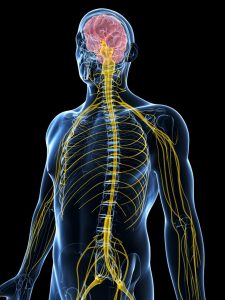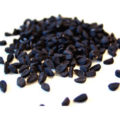1. Eat a Healthy Diet
Fuel your body with the nutrients it needs. A balanced diet rich in fruits, vegetables, whole grains, lean proteins, and healthy fats plays a crucial role in:
-
Preventing chronic diseases like heart disease, diabetes, and certain cancers
-
Enhancing energy levels and mental focus
-
Supporting immune function and digestive health
Even small changes — like swapping sugary drinks for water or choosing fresh fruit over fried snacks — can make a significant difference over time.
2. Clean Your Body
Good hygiene is the foundation of good health. Keeping your body clean not only improves your appearance but also protects against infections and skin issues.
-
Daily showers help remove sweat, dirt, and dead skin while improving circulation.
-
Hair care prevents scalp issues like dandruff and lice — regular washing is key.
-
Oral hygiene is non-negotiable. Brush and floss daily to prevent cavities, gum disease, and bad breath.
Cleanliness boosts self-esteem and leaves you feeling refreshed inside and out.
3. Exercise Regularly
Movement is medicine. Whether you’re 18 or 80, regular physical activity strengthens your heart, muscles, and bones — and even lifts your mood.
Benefits of exercise include:
-
Improved cardiovascular health
-
Increased flexibility and strength
-
Better sleep and reduced stress
-
Maintenance of a healthy weight
You don’t need an intense gym routine. A 30-minute walk, yoga session, dancing, or even gardening can help keep your body in motion and your mind sharp.

Your Body is Amazing — Take Care of It at Every Age
Your body is constantly working, adapting, and supporting you through every stage of life. It’s your most valuable asset — your vehicle for experiencing the world. That’s why taking care of it isn’t just important, it’s essential.
Aging is inevitable, but how you age is largely up to you. With a few consistent habits, you can keep your body feeling youthful, energetic, and resilient, no matter your age.
Here are 5 timeless ways to care for your body:
1. Eat a Healthy Diet
The food you eat is the fuel your body runs on. A well-balanced diet can help prevent lifestyle diseases like obesity, heart disease, diabetes, and even some forms of cancer.
Focus on:
-
Fresh fruits and vegetables
-
Whole grains and legumes
-
Lean proteins
-
Healthy fats like nuts, seeds, and olive oil
Even small swaps — like replacing a sugary drink with water — can have a big impact over time. Eating well boosts your energy, keeps your immune system strong, and helps you stay productive throughout the day.
2. Clean Your Body
Cleanliness is a key part of staying healthy and confident.
-
Regular bathing keeps skin clean, supports circulation, and can ease cold symptoms
-
Hair care prevents dandruff and itchiness; don’t skip washing for too long
-
Oral hygiene (daily brushing and flossing) keeps your mouth fresh and cavity-free
A clean body isn’t just about looking good — it’s about feeling your best.
3. Exercise Regularly
Physical activity is essential at every age. It helps maintain a healthy weight, supports strong bones and muscles, and controls blood sugar levels.
Daily movement also:
-
Boosts your immune system
-
Improves energy levels
-
Enhances mental health — reducing the risk of anxiety and depression
Whether it’s a brisk walk, yoga, dancing, or strength training — find an activity you enjoy and make it part of your lifestyle. Exercise isn’t a punishment, it’s a celebration of what your body can do!
4. Get Enough Sleep
Sleep is your body’s natural healing system. While you rest, your body:
-
Repairs muscles and tissues
-
Regulates blood sugar levels
-
Processes and stores memories
-
Balances mood and hormones
A good night’s sleep improves focus, productivity, and emotional resilience. Adults should aim for 7–9 hours of quality sleep each night. Even one extra hour can work wonders for your mood and overall health.
5. Take Care of Your Nerve Health
Nerve health often gets overlooked — but it’s critical to how your body functions, moves, and feels.
Support your nervous system by:
-
Eating foods rich in B vitamins, especially B12 and B6 (found in whole grains, eggs, leafy greens, and legumes)
-
Including omega-3 fatty acids from flaxseeds, walnuts, or fatty fish
-
Staying active, hydrated, and avoiding excessive alcohol or smoking
Tingling, numbness, or frequent fatigue could be early signs of nerve issues — never ignore them. Prioritize nutrition, movement, and regular check-ups to keep your nervous system in top condition.
Final Thought
Your body serves you every single day — show it the care and respect it deserves. A few simple daily habits can go a long way in helping you feel energized, focused, and strong at every stage of life.

A normal and healthy nervous system is critical for the functioning of the body. It is the nervous system that helps all the parts of your body to communicate properly with one another. Nerve damage can be caused by several factors such as injuries, spinal stenosis or diabetes. Nerve pain, also known as neuropathic pain can be hard to bear. The burning, pricking and the stabbing pains can keep you up all night.
Fortunately, there are natural alternatives that can help treat, repair and regenerate damaged nerves; Taking a combination of vitamin supplements works in relieving inflammation and soothing the pain.
RD Neha Kava
Latest posts by RD Neha Kava (see all)
- 3 Supplements To Try That Will Improve Your Health - March 15, 2025
- 3 Tips to Adding Supplements to Your Diet - March 14, 2025
- Beginners Running Tips – How to start getting in shape with the most efficient exercise out there - March 13, 2025



